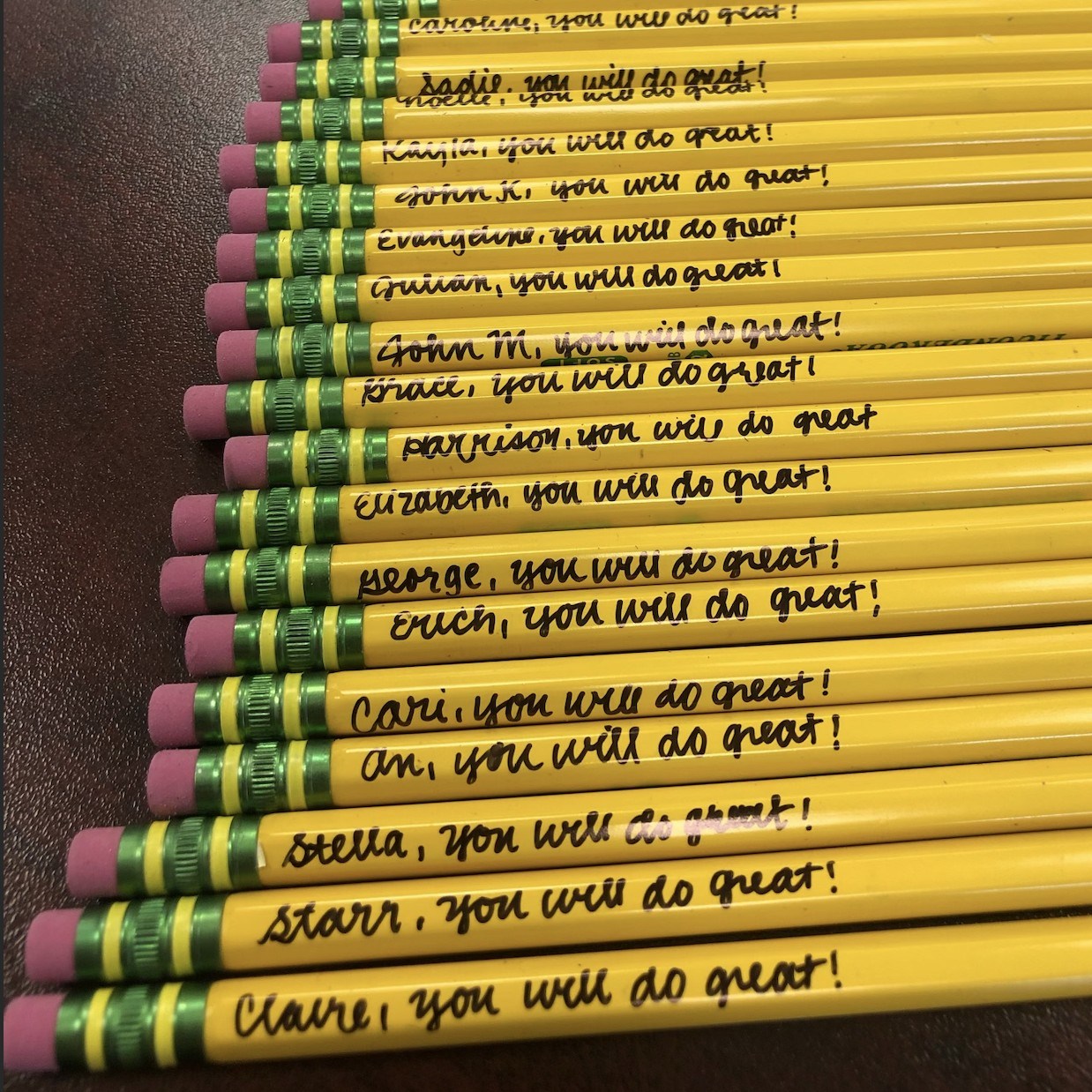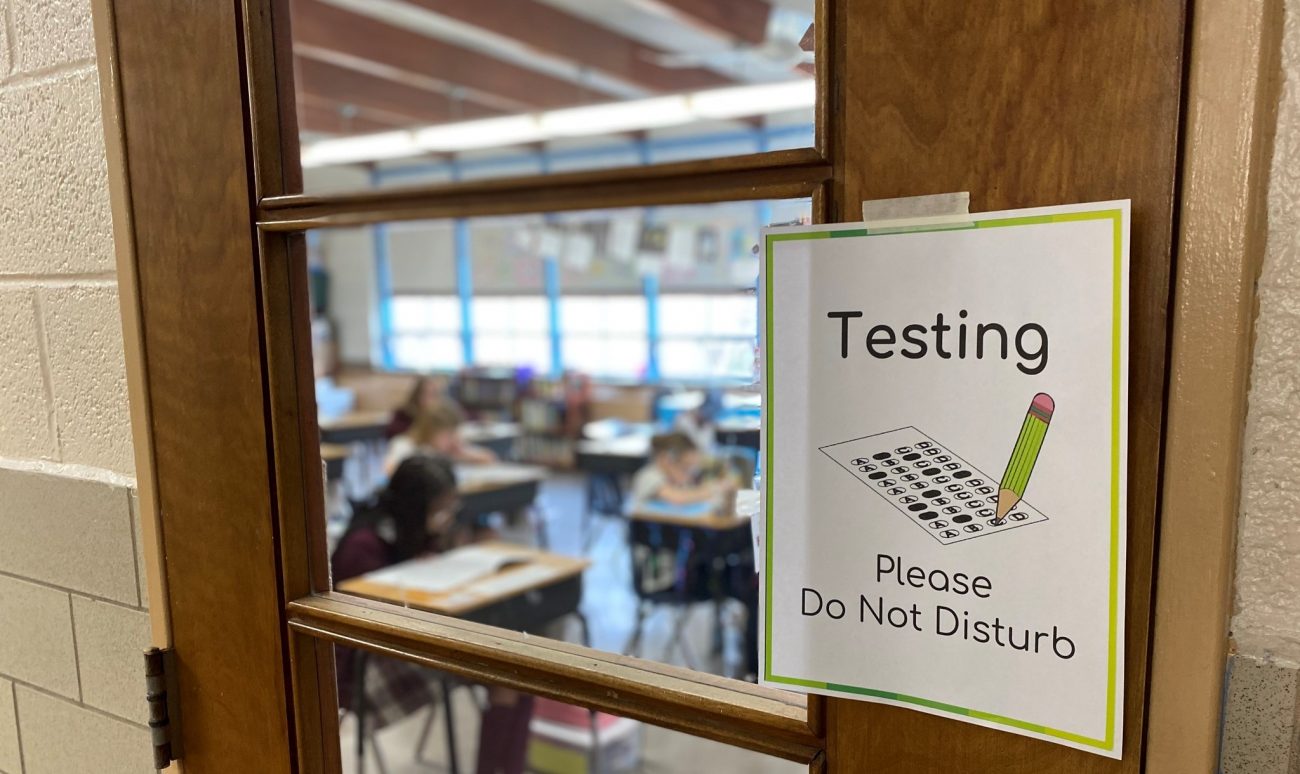Prolonged school closures during the pandemic made learning much more challenging for countless students across the United States.
The impact of attending school virtually is reflected in recent test score data from the National Assessment of Education Progress (NAEP). Compared with tests given during the 2019-2020 school year, the average test scores for 13-year-olds declined four points in reading and nine points in mathematics in 2022-2023, and they are at the lowest levels in decades, according to the NAEP data.
In addition, the National Center for Education Statistics reported that history and civics scores among lower and middle-performing eighth-grade students decreased between 2018 and 2022. The scores did not change for higher-performing students.
While this new data highlights deficits in learning among public school students, test scores of students who attend Catholic elementary schools throughout the five-county Archdiocese of Philadelphia have remained steady.
“We continue to see a full year’s growth with our students at every level,” said Sister Edward Quinn, I.H.M., Assistant Superintendent of Curriculum, Instruction, and Assessment in the archdiocesan Office for Catholic Education. “The numbers have been very consistent, and the test results have shown no significant learning gaps in student performance.”
>>RELATED: No Learning Loss in Catholic Schools
According to archdiocesan test data, mean scores for students placed them from 3 to 25 points above the national norm in all content areas at every grade level tested. At the highest level tested – Grade 7 – mean scores were between 20 and 25% above the norm.
Additionally, at every grade level and in all content areas, archdiocesan students scored in the top 25% of all U.S. students who took the test. In some content areas, more than 40% of archdiocesan students in different grade levels placed in the the top quartile.
Sister Edward credits Catholic school teachers with helping their students continue to perform well on the TerraNova tests, despite the challenges related to the pandemic.
“I attribute the students’ success to the dedication of our teachers and the fact that we do have a strong curriculum,” she said. “Our teachers adhere to the curriculum, and God bless them, they have really done a phenomenal job in working with the students and helping them move forward.”

In this 2022 photo, a teacher at St. Mary Interparochial School gives her 5th grade students some extra motivation by writing kind notes of support on their test taking pencils. (St. Mary Interparochial School)
In addition, programs have been implemented to help students who are struggling academically, according to Sister Edward.
“We’ve been consistently trying to develop plans to help our students to achieve, and our teachers and principals have been phenomenal in helping us to implement those plans,” she added.
Sister Edward explained that Catholic school students are given two different tests, the TerraNova assessment on various academic subjects, and InView, which measures skills and abilities important for academic success.
“When we use both tests, we’re able to see if the students are working up to their potential because we compare ability with achievement,” she said.
The TerraNova and InView tests are given to second through seventh grade students in the morning so that learning is not interrupted, Sister Edward explained. The InView ability test is completed in one day, and the TerraNova assessments are given to students over a three-day period.
“Students are given one section of the test at the beginning of the day, and that takes no more than an hour,” she added. “After the assessments are completed, the teachers can resume instruction so that the students don’t lose three days of learning.”
Sister Edward noted that the assessments were given to second graders for the first time this year in order to have a baseline for conducting longitudinal studies. Another change this year was that students were only tested on their reading, language, and math skills.
“We focused on the basic skills because this was the first year that students were able to do the assessments online, and some of the schools opted to do that,” she said. “We wanted to make sure the schools could do the assessments in quality time and without focusing on too many subjects at one time.”
“We didn’t want to put too much on them at one time, and we’re still more or less recouping from the pandemic time. Next year we’ll go back to including science and social studies.”
While Catholic school students performed well overall on the TerraNova tests, Sister Edward noticed that reading skills appeared to be not as strong as they had been before the pandemic. To address this issue, she said several professional development days on the science of reading have been planned for the upcoming school year.
“We take the test scores, look at the results, and establish goals for ourselves to move forward,” Sister Edward added.
She emphasized that a key factor in the success of Catholic school students is the selfless dedication of teachers.
PREVIOUS: Bucks County Parishioner Advocates on Capitol Hill with CRS for Lifesaving Foreign Aid
NEXT: Here’s How to Send Your Prayer Intentions to World Youth Day 2023




Share this story